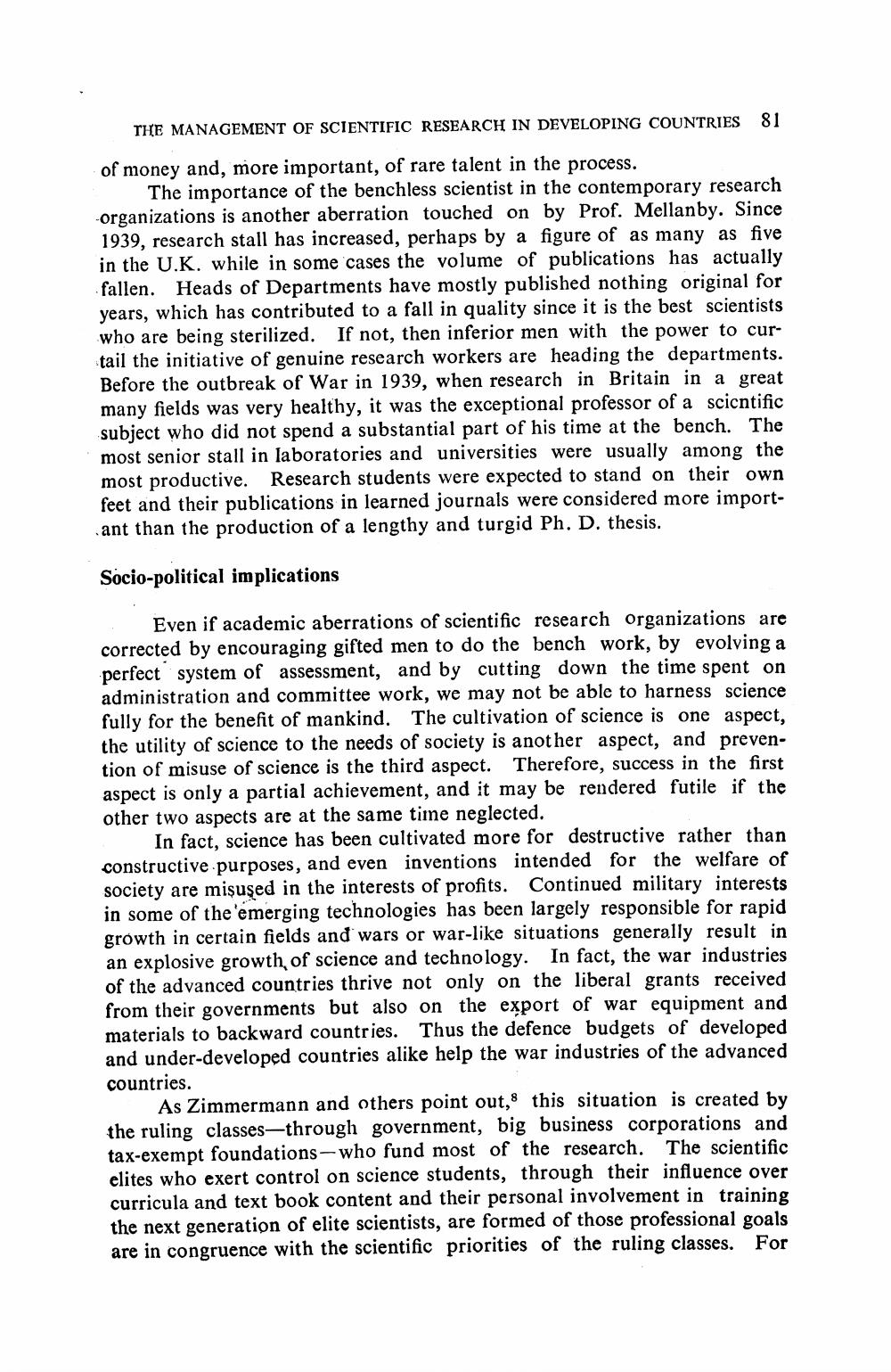Book Title: Management Of Scientific Research In Developing Countries Author(s): Ram Prasad Publisher: Ram Prasad View full book textPage 5
________________ THE MANAGEMENT OF SCIENTIFIC RESEARCH IN DEVELOPING COUNTRIES 81 of money and, more important, of rare talent in the process. The importance of the benchless scientist in the contemporary research organizations is another aberration touched on by Prof. Mellanby. Since 1939, research stall has increased, perhaps by a figure of as many as five in the U.K. while in some cases the volume of publications has actually fallen. Heads of Departments have mostly published nothing original for years, which has contributed to a fall in quality since it is the best scientists who are being sterilized. If not, then inferior men with the power to curtail the initiative of genuine research workers are heading the departments. Before the outbreak of War in 1939, when research in Britain in a great many fields was very healthy, it was the exceptional professor of a scientific subject who did not spend a substantial part of his time at the bench. The most senior stall in laboratories and universities were usually among the most productive. Research students were expected to stand on their own feet and their publications in learned journals were considered more important than the production of a lengthy and turgid Ph. D. thesis. Socio-political implications Even if academic aberrations of scientific research organizations are corrected by encouraging gifted men to do the bench work, by evolving a perfect system of assessment, and by cutting down the time spent on administration and committee work, we may not be able to harness science fully for the benefit of mankind. The cultivation of science is one aspect, the utility of science to the needs of society is another aspect, and prevention of misuse of science is the third aspect. Therefore, success in the first aspect is only a partial achievement, and it may be rendered futile if the other two aspects are at the same time neglected. In fact, science has been cultivated more for destructive rather than constructive purposes, and even inventions intended for the welfare of society are misused in the interests of profits. Continued military interests in some of the 'emerging technologies has been largely responsible for rapid growth in certain fields and wars or war-like situations generally result in an explosive growth of science and technology. In fact, the war industries of the advanced countries thrive not only on the liberal grants received from their governments but also on the export of war equipment and materials to backward countries. Thus the defence budgets of developed and under-developed countries alike help the war industries of the advanced countries. As Zimmermann and others point out, this situation is created by the ruling classes-through government, big business corporations and tax-exempt foundations-who fund most of the research. The scientific elites who exert control on science students, through their influence over curricula and text book content and their personal involvement in training the next generation of elite scientists, are formed of those professional goals are in congruence with the scientific priorities of the ruling classes. ForPage Navigation
1 ... 3 4 5 6 7 8 9 10 11
